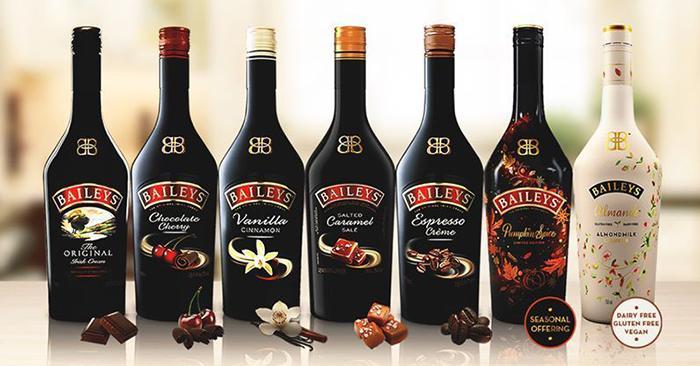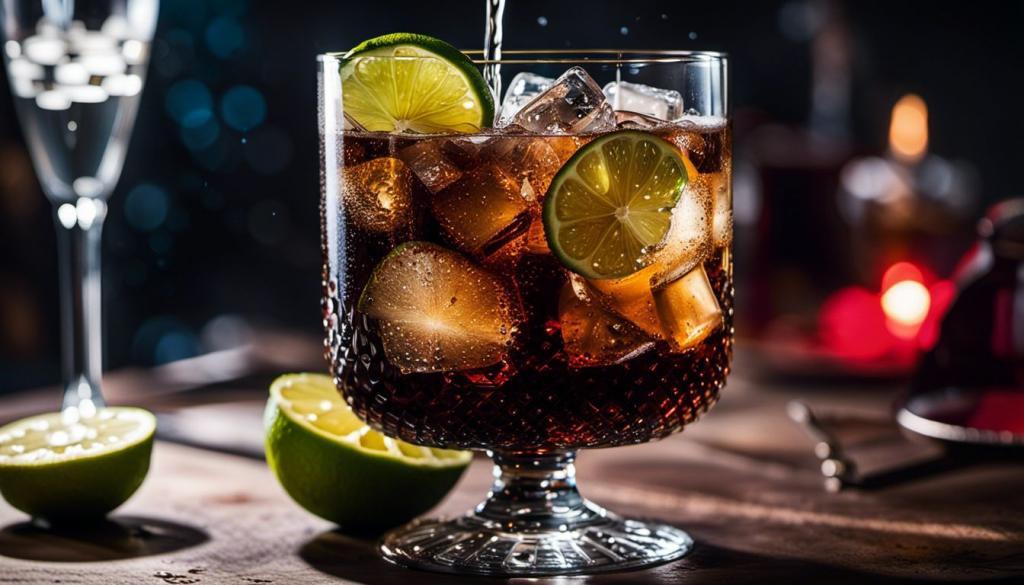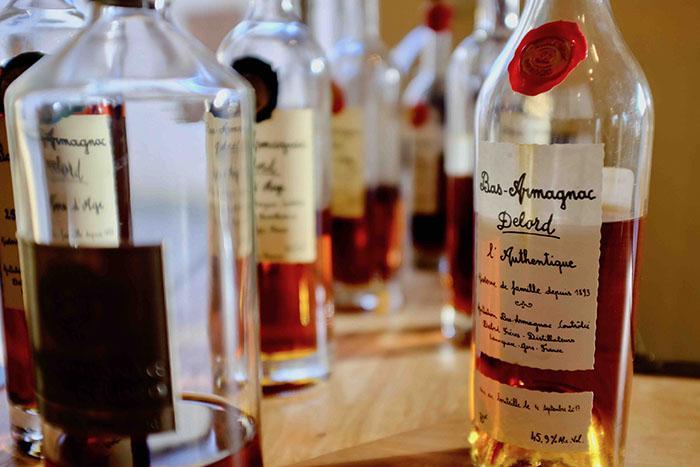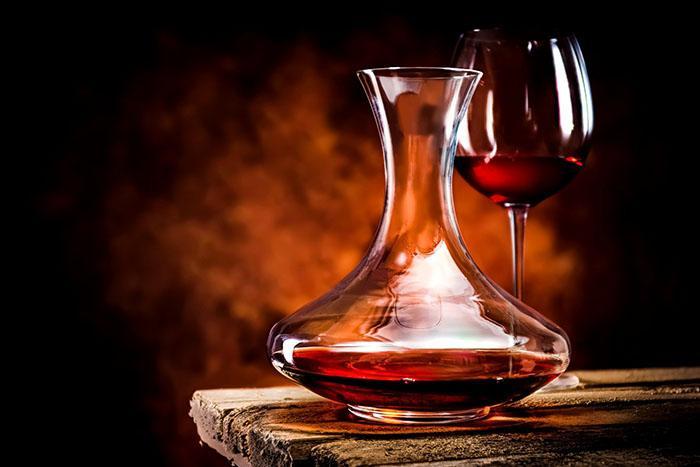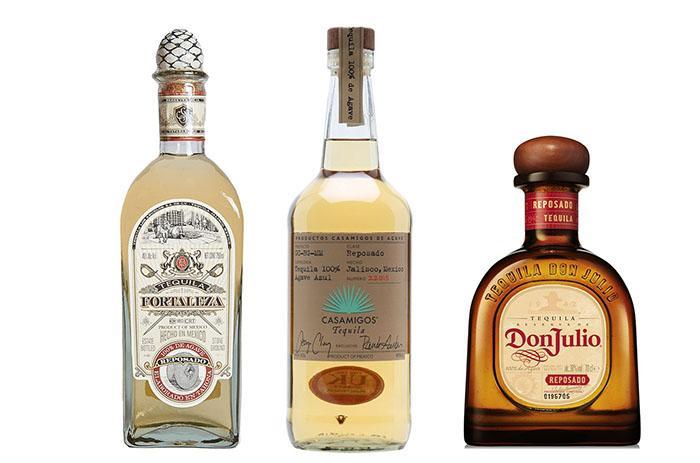Ever grabbed a cocktail menu, only to come across the term “bitters” and wondered what it meant?
In this article, we take a journey into the world of bitters – unveiling their origins, types, uses and how they’ve turned from medicines into mixologists’ magic ingredients.
You Are Watching: What Are Bitters Updated 12/2025
Ready for an aromatic adventure? Dive right in!
What Are Bitters?

Definition of bitters
Bitters are a unique class of liquors that showcase intricate combinations of flavors, primarily characterized by their distinct bitterness.
These alcoholic concoctions are crafted by infusing a flavorless alcohol base with various botanical ingredients such as herbs, spices, fruits, roots and tree bark.
Originating in the 1700s as medicinal potions prescribed by doctors, they have evolved to become exceptional flavor enhancers widely employed in mixology.
Today, bitters play a pivotal role not only in cocktail preparation but also serve purposes beyond the bar scene – notable for their use as digestion aids called ‘digestifs’.
They come in both alcoholic and non-alcoholic varieties to cater to diverse preferences and needs.
This alcoholic preparation brimming with herbal extracts stands out for its taste profile that swings between bitter and bittersweet notes.
Ingredients used in bitters
Bitters are made using a variety of ingredients that contribute to their unique flavors and aromas.
Here are some common ingredients found in bitters:
- Spices: Bitters often incorporate a range of spices such as cinnamon, cloves, cardamom, and nutmeg. These spices add warmth and complexity to the flavor profile.
- Barks: Tree barks like gentian root, quassia bark, and cinchona bark are commonly used in bitters. They provide a bitter taste and help balance the sweetness of other ingredients.
- Fruit Peels: Citrus peels, such as orange or lemon, are frequently added to bitters for their bright and zesty flavors. These peels add a refreshing element to cocktails.
- Roots: Ingredients like angelica root, dandelion root, or rhubarb root bring earthy undertones to bitters. They also contribute to the overall bitterness of the blend.
- Botanicals: Bitters can include an array of botanicals like herbs (such as chamomile or thyme), flowers (such as lavender or rose petals), or even rare plants (such as wormwood). These botanicals impart distinct flavors and aromatics.
- Alcohol Base: Bitters require a neutral spirit as a base for infusion. Common choices include high-proof vodka or grain alcohol. The alcohol helps extract the flavors from the botanicals during the infusion process.
- Sweeteners: Some bitters may contain small amounts of sweeteners like sugar or honey to balance out the bitterness while adding depth to the overall taste.
- Water: During production, water is often added to dilute the high-proof alcohol and achieve desired proof levels for bottling.
- Other Flavorings: Depending on the specific recipe, additional flavorings such as vanilla extract, coffee beans, or exotic spices may be used for distinctive variations on traditional bitters.
Types of Bitters
Angostura bitters

Angostura bitters, one of the most renowned types of bitters, is a key ingredient in many classic cocktails. This distinctively flavored aromatic liquid has a strong bitter taste with hints of spices and herbs.
Originally created as a digestive aid by a German doctor in the early 19th century, Angostura bitters quickly gained popularity and became an essential component in cocktail recipes worldwide.
Made from a secret blend of botanicals, including bark from the angostura tree, this iconic flavoring adds depth and complexity to drinks like the Old Fashioned and Manhattan.
Whether you’re looking to elevate your mixology skills or simply enjoy its unique taste, Angostura bitters continue to be cherished by alcohol enthusiasts around the globe.
Peychaud’s bitters
Peychaud’s bitters is a unique and flavorful type of bitters that has gained popularity in the cocktail world. Created by Antoine Amédée Peychaud, a New Orleans apothecary, in the early 19th century, it has become an essential ingredient in classic cocktails like the Sazerac.
Peychaud’s bitters are known for their distinctive red color and subtle flavor profile.
Made from a blend of botanicals including gentian root, anise seeds, and cherry bark, this particular type of bitters adds complexity and depth to drinks with its herbal notes and hint of licorice.
Read More : How Many Bottles In A Barrel Of Whiskey Updated 12/2025
Not only does it enhance the taste of cocktails, but Peychaud’s bitters also contributes to digestion due to their long-standing reputation as digestive aids.
Whether you’re mixing up your favorite drink or exploring new flavors, Peychaud’s bitters is sure to add a touch of New Orleans flair to any concoction.
Orange bitters

Orange bitters are a popular type of bitters that add a distinct citrus flavor to cocktails. These bitters are made by infusing orange peels and other botanicals into a neutral spirit, creating a flavorful concoction with hints of zest and bitterness.
Orange bitters not only enhance the taste of beverages but also provide potential health benefits. They can aid digestion and have been used historically as herbal remedies.
Whether you’re mixing up an old-fashioned or trying your hand at homemade cocktails, orange bitters are a fantastic addition that adds complexity and zest to your drink.
So, next time you’re looking to elevate your cocktail game, don’t forget to reach for the orange bitters!
Other types of bitters
- Campari: A popular Italian bitter liqueur known for its bright red color and distinct flavor profile.
- Fernet-Branca: A bitter herbal liqueur from Italy with a strong minty and medicinal taste.
- Amaro: A broad category of Italian bittersweet liqueurs that vary in flavor and alcohol content.
- Underberg: A German herbal digestif made from a secret blend of 43 herbs, roots, and spices.
- Suze: A French gentian-based bitter liqueur that is often mixed with tonic water or used in cocktails.
- Cynar: An Italian artichoke-based bitter liqueur with a unique vegetal flavor.
- Ramazzotti: An Italian amaro with a rich, complex taste derived from a blend of botanicals and spices.
- Chartreuse: A French herbal liqueur produced by Carthusian monks using a recipe dating back to the 18th century.
Uses and Benefits of Bitters
Adding flavor to cocktails

Bitters are not just for medicinal purposes, but they also play a crucial role in adding unique flavors to cocktails. These flavorful infusions can elevate any mixed drink by providing a bitter or bittersweet taste that adds depth and complexity.
With their botanical extracts and aromatic flavorings, bitters enhance the overall drinking experience by balancing out sweetness and adding an intriguing twist.
Whether it’s the classic Angostura bitters or the vibrant orange bitters, these cocktail ingredients bring character and sophistication to your favorite drinks.
Plus, with various options available, you can experiment with different types of bitters to create your signature concoctions that suit your personal taste preferences perfectly.
Give your cocktails a delightful boost with these flavorful mixology additions!
Aiding digestion
Bitters have long been known for their ability to aid digestion. These botanical-infused alcoholic beverages contain compounds that stimulate the production of digestive enzymes, helping to break down food more efficiently.
The bitter taste of bitters triggers our bodies’ natural response to produce saliva and stomach acids, preparing us for better digestion.
This can be particularly beneficial after a heavy or rich meal, as bitters can help alleviate symptoms such as bloating and indigestion.
Additionally, the herbal properties found in many bitters are believed to have further digestive benefits, soothing inflammation and promoting a healthy gut environment.
So not only do bitters add flavor and complexity to cocktails, but they also provide a natural way to support our digestion.
Health benefits of bitters
Bitters not only add flavor to cocktails but also have a range of potential health benefits. These alcoholic infusions are often believed to aid digestion, making them a popular choice for those seeking relief from digestive issues.
Bitters can stimulate the production of digestive enzymes and gastric juices, helping to improve overall digestion. They can also help reduce bloating, alleviate heartburn, and ease stomach discomfort after a meal.
Read More : What Whiskey Do They Drink On Yellowstone Updated 12/2025
Additionally, bitters are known for their potential antioxidant properties due to the presence of herbs and botanicals in their formulations.
These antioxidants can help fight against free radicals in the body and support overall well-being.
In addition to aiding digestion, bitters may offer other health benefits as well. Some studies suggest that ingredients found in bitters could potentially have anti-inflammatory properties while others indicate they may support liver health by increasing bile flow or promoting detoxification processes.
However, it’s important to note that more research is needed to fully understand these effects and determine appropriate usage guidelines for specific conditions.
It’s always best to consult with a healthcare professional before incorporating bitters into your wellness routine.
How to Use Bitters
Mixing bitters in cocktails
Bitters are not only a standalone beverage but also a key ingredient in many popular cocktails.
Here’s how to mix bitters into your favorite drinks:
Start with the classics:
- Classic cocktails like the Old Fashioned and Manhattan often call for a few dashes of bitters. This adds complexity and depth to the drink’s flavor profile.
Experiment with different flavors:
- Bitters come in various flavors such as orange, cherry, and chocolate. Try adding a few drops of different bitters to see how they enhance the taste of your cocktail.
Use them sparingly:
- Bitters are potent, so it’s best to start with just a few dashes and adjust to your preference. A little goes a long way when it comes to these flavorful concoctions.
Try new combinations:
- Mixologists are constantly pushing boundaries by combining different bitters in one cocktail. Get creative and experiment with unique flavor pairings to create your own signature drink.
Enhance herbal or fruity notes:
- If you’re making a cocktail that features herbs or fruits, adding complementary bitters can intensify those flavors and create a more well-rounded taste experience.
Blend with other ingredients:
- Bitters can be combined with other flavorful ingredients like syrups, fruit juices, or even tea infusions to create complex layered cocktails that tantalize your taste buds.
Garnish with flair:
- Don’t forget that presentation matters! After mixing your desired blend of bitters into your cocktail, garnish it with fresh herbs, citrus peels, or even edible flowers for an added visual appeal.
Incorporating bitters in cooking and baking
Here are some ways you can incorporate bitters into your culinary creations:
- Add a few dashes of bitters to marinades for meat, poultry, or seafood. The bitter flavors can help enhance the overall taste profile of the dish.
- Use bitters in salad dressings to give them an extra kick. Just a small amount can add depth and complexity to your favorite vinaigrette or creamy dressing.
- Bitters can be used in baking to bring out the flavors of desserts like chocolate cake or cookies. Try adding a teaspoon or two of bitters to your batter for a subtle yet intriguing taste.
- Incorporate bitters into sauces and gravies for a unique twist. They can help balance out rich or heavy flavors, adding a pleasant bitterness that complements the dish.
- Experiment with incorporating bitters into dessert recipes like custards, ice creams, or pies for a surprising burst of flavor.
- Infuse oils or vinegars with bitters by combining them in an airtight container and letting them sit for a few days. This infused oil or vinegar can be used as a finishing touch on salads, roasted vegetables, or grilled meats.
Making homemade bitters
Here are some steps to get you started:
- Choose your base alcohol: Start by selecting a neutral spirit such as vodka or Everclear as the base for your homemade bitters. This will allow the flavors of the botanicals to shine through.
- Gather your ingredients: Collect a variety of herbs, spices, fruits, roots, and other botanicals that you’d like to infuse into your bitters. Popular choices include bittering agents like gentian root, citrus peels, star anise, cloves, and cardamom.
- Prepare the infusion: Combine your selected botanicals in a clean glass jar or bottle with the chosen alcohol base. The ratios will depend on personal preference, but a general guideline is about one part botanicals to four parts alcohol.
- Let it steep: Seal the container tightly and store it in a dark and cool place for several weeks or even months. This allows time for the flavors to meld together and develop complexity.
- Strain and filter: Once the infusion period is complete, strain out the solids using cheesecloth or a fine mesh strainer. It’s important to remove all solid particles to achieve a clear and smooth final product.
- Adjust flavor if needed: Taste your homemade bitters and adjust the flavor by adding small amounts of additional botanicals or sweeteners if desired. Remember that bitters are meant to be intensely flavored, so be cautious when making adjustments.
- Bottle and store: Pour your finished homemade bitters into small glass bottles with dropper caps or dasher tops for easy dispensing. Label them with the ingredients used and date of creation for future reference.
- . Experiment with cocktails: Now that you have your homemade bitters ready, it’s time to get creative! Use them in classic cocktails like Old Fashioneds, Manhattans, or Negronis to add depth and complexity. You can also try incorporating them into mocktails or experimenting with new flavor combinations.
Conclusion
In conclusion, bitters are a fascinating creation that adds a unique flavor profile to cocktails and drinks.
With their aromatic blend of herbs, spices, and botanicals, they not only enhance the taste but also offer potential health benefits.
Whether you’re sipping on an old-fashioned or experimenting with your own homemade infusion, bitters are sure to elevate your drinking experience.
So next time you’re looking to add a touch of complexity to your favorite drink, remember the power of bitters!
Sources: https://chesbrewco.com
Category: Wine



